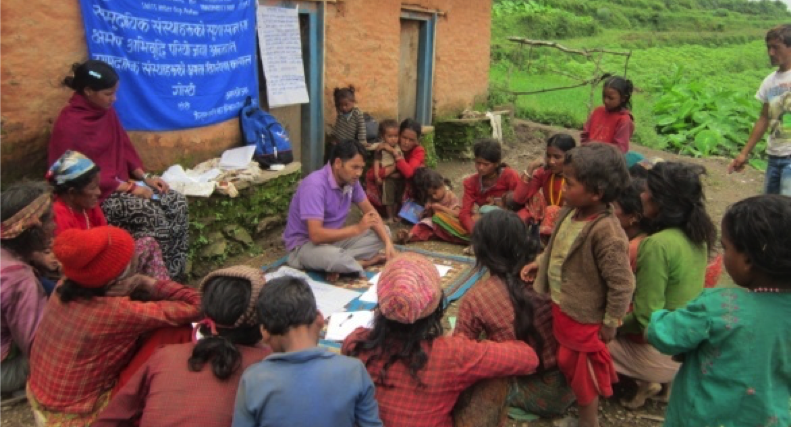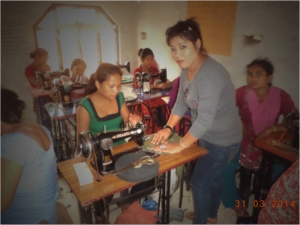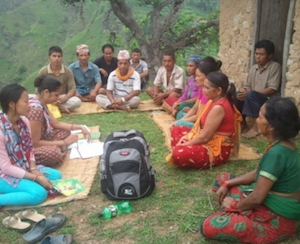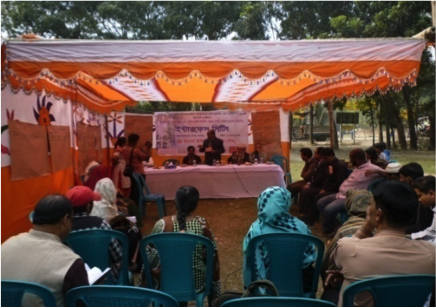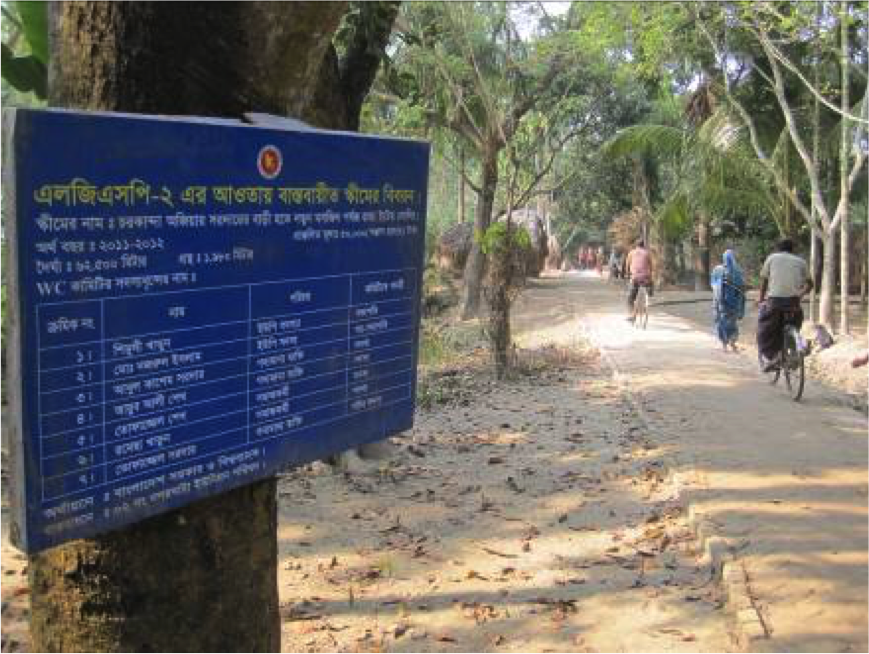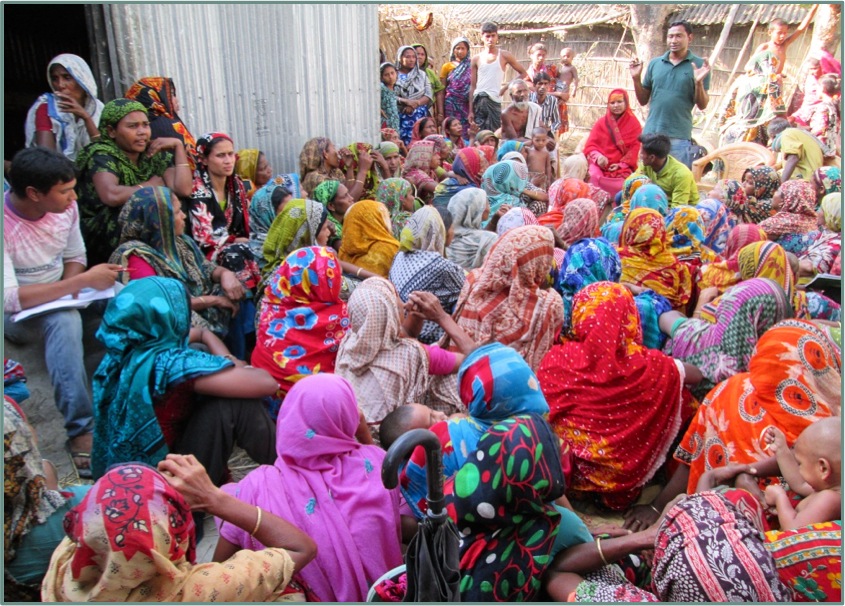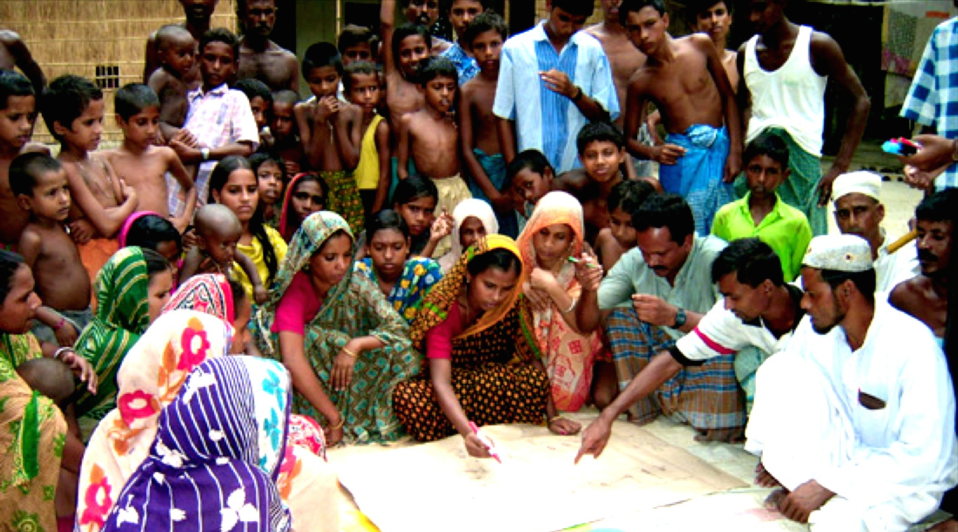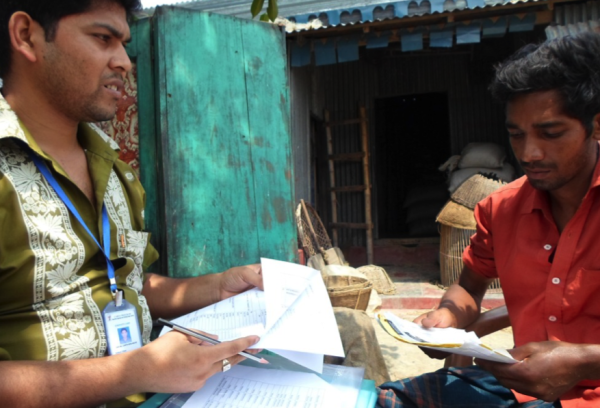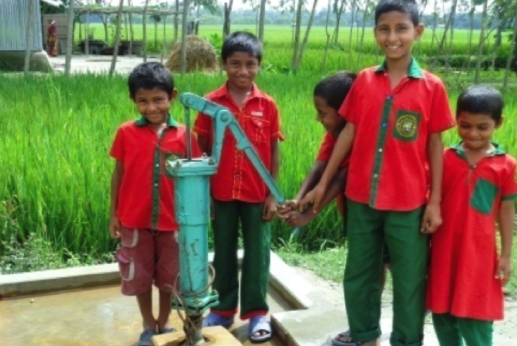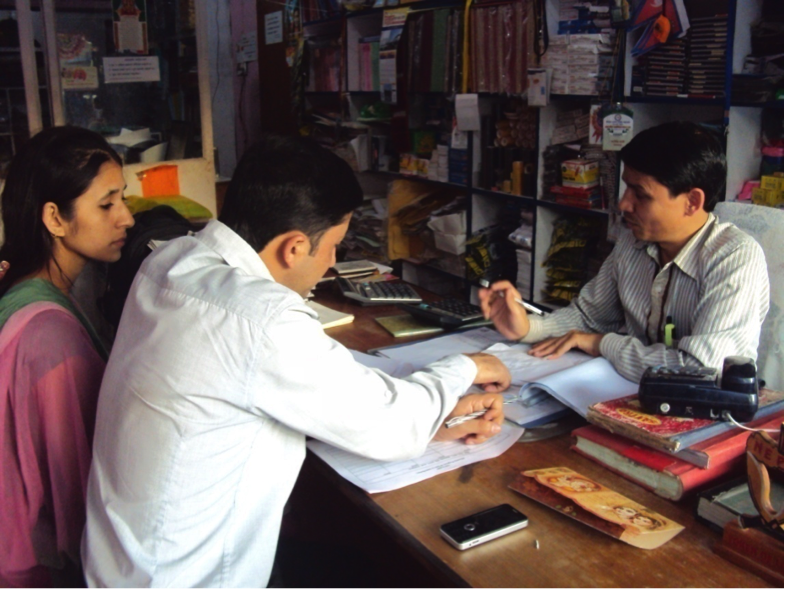Poverty Alleviation Fund (PAF-2) is a development project funded by the World Bank and implemented by the Poverty Alleviation Fund in Nepal. The project's objective is to improve living conditions and empower the rural poor, with particular attention to groups that have been excluded based on gender, ethnicity, caste or…...
Enhanced Vocational Education and Training (EVENT)
In 2011 and 2012, over 385,000 people left Nepal seeking better employment opportunities. Their remittances officially amounted to one quarter of the gross domestic product (GDP). More than 75% of migrant workers from Nepal are unskilled workers, leading to low remittance levels per migrant. Enhancing the skill levels of migrant…...
Community Action for Nutrition (CAN)
The Sunaula Hazar Din - Community Action for Nutrition (SHD-CAN) Project was designed to address the risk factors of chronic malnutrition in children. From early 2014, Nucleus for Empowerment through Skill Transfer (NEST) undertook independent monitoring of the SHD-CAN project with the support of CARTA. It mobilized seven Cluster Verification…...
Local Government Support Project (LGSP II)
Bangladesh's Local Government Support Project (LGSP-II) is a national decentralization plan that aims to strengthen local governance. LGSP II provides grants to Union Parishads (UPs) - the oldest and most local government system – so the community can determine which public projects serve them best. Thus, the main purpose of…...
Social Investment Program Project (SIPP-II)
Poverty alleviation is the greatest challenge Bangladesh currently faces. Although Bangladesh has shown impressive economic and social gains, the level of poverty continues to be a challenge with 32% of the total population living below the poverty line in 2010. The objective of the Social Investment Program Project (SIPP II) is to improve…...
Rural Access Improvement and Decentralization Project (RAIDP)
The Rural Access Improvement and Decentralization Project (RAIDP) aims to improve services related to health, education, agriculture and good governance in Nepal. Over the project period (2005 to 2013), over 2 million Nepalis have utilized improved rural transport infrastructures and services produced by the program, in turn enhancing their access…...
Rural Electrification and Renewable Energy Development (RERED II)
The Rural Electrification and Renewable Energy Development (RERED II) is a publicly funded project aimed at increasing access to electricity through Solar Home System (SHS) in "off-grid" rural areas of Bangladesh. Although it has been recognized as one of the largest and fastest growing off-grid renewable energy programs in the world, policy and…...
Reaching Out-of-School Children Project II (ROSC2)
The Government of Bangladesh has undertaken a number of targeted interventions, as part of its National Education Policy (2010), to ensure one-hundred percent enrollment and completion of primary education before 2015. The Reaching out of School Children Project (ROSC-II), launched in 2004, is one such intervention that has played a…...
School Sector Reform Project (SSRP)
The School Sector Reform Program (SSRP) is a follow-up of the ongoing “Education for All” program in Nepal. Since 2010, free textbooks have been distributed to all students up to grade 10 in community schools throughout the country. According to the project guidelines, students are expected to receive their textbooks by…...
- 1
- 2

